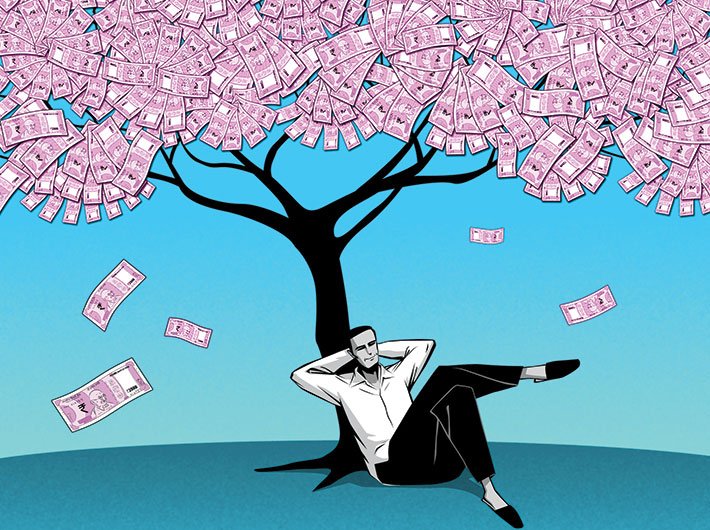The government has made progress on introduction of improved identification technology using Aadhaar, which has potential to improve the administration of all social programs
The need to reform existing subsidy programs in India has recently gained momentum. Part of the policy debate has focused on the potential role of a universal basic income (UBI) as an alternative to the existing system of state subsidies, which are typically characterized as fraught with inefficiencies and inequities, said a report of the International Monetary Fund (IMF).
Read: Universal Basic Income: The big idea takes tiny steps
It carried out a microsimulation analysis of a policy reform that replaces food and fuel subsidies in India with a UBI.
Food and kerosene subsidies are managed through the Public Distribution System (PDS), which targets rationed quantities of these goods to poor households. In addition, fuel (gasoline, diesel, coal, liquefied petroleum gas [LPG], and kerosene) prices are substantially below efficient levels that would internalize the negative externalities associated with fossil fuel consumption. Eliminating these energy “tax subsidies” would require a substantial increase in fuel taxes and retail fuel prices. These large price increases reflect a broad definition of “tax subsidies” that reflects the environmental cost associated with fossil fuel consumption, said the IMF Fiscal Monitor: Tackling Inequality, October 2017
The fiscal revenue yield from eliminating these “tax subsidies” therefore could potentially be larger than the fuel subsidies typically reported on budget, which are based on a narrower definition of subsidies that ignores the negative externalities associated with fuel consumption.
“The simulations are intended to illustrate the potential benefits from using a UBI both to reform a current but inefficient social safety net (in this case, the PDS) and to generate public support for an ambitious fuel price reform,” it said.
Based on India’s 2011–12 National Sample Survey, the analysis assessed the welfare impact of replacing the subsidies that existed in that year with a UBI in a fiscally neutral manner. The fiscal envelope devoted to the UBI is equivalent to the combined fiscal cost of the PDS and energy subsidies in 2011–12, which would finance an annual uniform UBI for every person in India of Rs 2,600 (about US$54) in 2011–12, equivalent to about 20 percent of median per capita consumption in that year.
Although such a transfer is more modest than that often discussed in public debate, it would still incur a fiscal cost of approximately 3 percent of GDP. Since the analysis is anchored in 2011–12, it does not take into account the significant subsidy reforms enacted by the government of India in more recent years.
The government of India has also made significant progress on the introduction of improved identification technology using the Aadhaar biometric citizen registry, which has the potential to greatly improve the administration of all social programs, and has already started to replace subsidies with the Direct Benefit Transfer, which is helping to improve targeting and reduce the fiscal cost of transfers.
The microsimulation results indicate that a UBI would outperform the PDS and energy subsidies along three key dimensions:
• Coverage. Despite its broad coverage of the population, significant undercoverage of lower-income groups (at nearly 20 percent) still exists under the PDS.
• Progressivity. Higher-income deciles receive a larger share of PDS spending (with the richest 40 percent of households receiving 35 percent), and implicit energy subsidies are also highly regressive
• Generosity. Replacing PDS subsidies and implicit energy subsidies with a UBI would result in a substantial increase in the generosity of benefits received by lower-income groups.
“In general, reaping the potential gains from the introduction of a UBI would need careful planning to overcome political, social, and administrative challenges, especially when subsidy reforms involve such large price increases as in the simulation,” said the IMF report.
